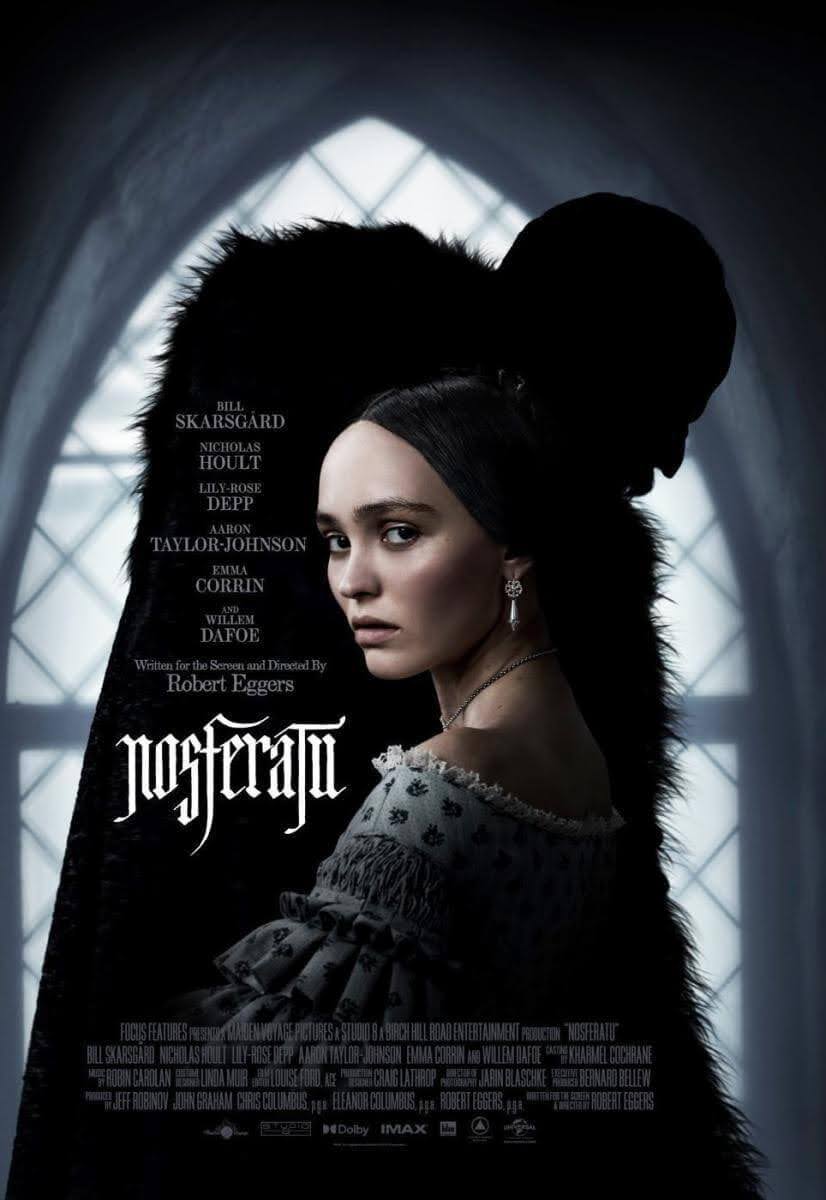Released on Christmas 2024, “Nosferatu” is a beautiful remake of the two previous Nosferatu movies released in 1922 and 1979. Packed with a talented cast and amazing cinematography, the film is perfect for all movie enjoyers.
For casual watchers, however, the movie may seem a bit uncomfortable. There are frequent scenes where one of the main characters, Ellen, suffers supernatural seizures as an effect of her being possessed by Count Orlok, the main villain. There are other various scenes that, in short, make the movie rated R.
The film follows Ellen’s torturous time being haunted by Orlok, otherwise known as Nosferatu. Her husband Thomas, receives a mission from the owner of the firm where he works, which is to sell an old mansion to a German count, coincidentally being Orlok. The job ends up unleashing Nosferatu and his hauntings on Ellen and Thomas’ hometown.
On the surface, the film seems redundant, boring and slow. But that is the point. Director Robert Eggers’ style embraces the slower pace and allows more time for viewers to enjoy the unique camera angles and the true beauty of the movie. Each scene’s music and cinematography match the desired mood as well.
Some shots add a level of discomfort unseen in other horror films, like directly cutting to Orlok’s eyes when Thomas cuts his hand in Orlok’s German castle.
The traditional Gothic style Eggers needed to replicate shows up frequently – dim lighting, small objects and many more. This further adds to the exceptional production of “Nosferatu.”
The cast, featuring names like Willem Dafoe and Lily Rose-Depp, brings a tremendous performance. There are many different expressions and moods demanded throughout the movie, thus displayed by Eggers’ star-studded cast.
“Nosferatu” received a strong audience reaction, receiving an 85% on Rotten Tomatoes. It also received a 7.4/10 on IMDb. Critics love the film – for good reason. For casual fans, it may seem pointless, but “Nosferatu” is a tremendous watch, gaining appreciation for the production and execution of a proper film.















